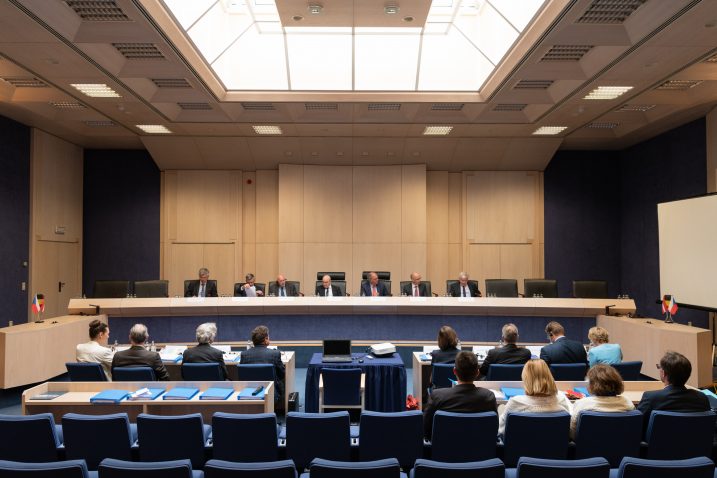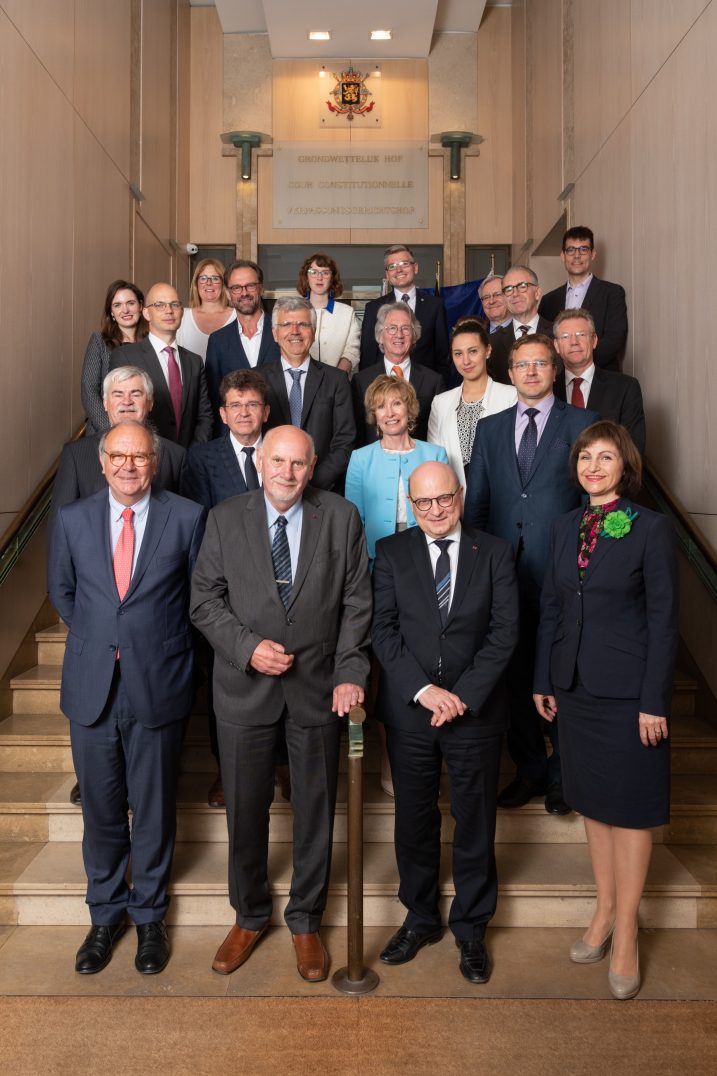Justices of the Constitutional Court explain the legal effect of a Constitutional Court’s judgment in Latvia and share experience with respect to aspects of bioethics in the Court’s case law
On Tuesday, 11 June, in the framework of trilateral co-operation, judges from the Constitutional Courts of Latvia, Belgium and Czechia shared their experience and during two working sessions discussed aspects of bioethics in the constitutional courts’ rulings and also explored the legal effect of the Constitutional Court’s judgements in each of the countries.
The session was opened by André Alen, the President of the Constitutional Court of Belgium. He underscored that this form of trilateral co-operation reinforced the judicial dialogue; moreover, for the third time, judges had the possibility to meet, to share mutually enriching experience and opinions on relevant issues in the constitutional law.
During the first session on aspects of bioethics in the case law of constitutional courts, Sanita Osipova, the Vice-president of the Latvian Constitutional Court, was the speaker from the Latvian delegation. In her presentation, she focused on the concept of human dignity examined in the judgements by the Constitutional Court in interconnection with the principles of bioethics. She foregrounded the fact that bioethics had become an important branch in the applied ethics, pertaining to a number of issues important for society, for example, euthanasia, organ transplantation, reproductive medicine, the limits and methods of patient care as well as a number of other similar legal issues.
Sanita Osipova analysed the trends in the development of bioethics and its impact on contemporary culture. She concluded that currently science offered implementation of significant changes in the life of society; therefore the legal system should be developed to regulate the new relationships created by these new possibilities. Sanita Osipova underscored that, in these circumstances, both the legislator and the parties applying the law, in their work, had to respect the principles of bioethics, which had been created to safeguard human dignity as the supreme value.
Sanita Osipova concluded her presentation by stating that the concept of human dignity and the principle of personal self-determination, derived from it, at the time had been established to allow a person live a life worthy of human dignity rather than exercising it to opposite ends. However, the contemporary society must take a step forward and decide, whether the principle of human dignity which determines the State’s obligation to respect a person’s freedom, also could restrict a person’s freedom to act contrary to human dignity.
At the discussion on the legal effects of the Constitutional Courts’ rulings in each of the states, a presentation on the Latvian model was given by the Justice of the Constitutional Court Jānis Neimanis. He explored the scope of the legislator’s authorisation granted to the Constitutional Court in reviewing the constitutionality of contested norms. He drew attention to the fact that the Constitutional Court had been granted broad discretion in deciding on the date as of which the contested norm or regulatory legal act, which had been recognised as being incompatible with a legal norm of higher legal force, becomes legally void.

Justices of the Constitutional Court meet with the Judges of the Belgian and Czech Constitutional Courts in the framework of trilateral co-operation. Photo: The Constitutional Court of Belgium.
In his presentation, Jānis Neimanis provided an insight also in such situations where the Constitutional Court, by broadening the claim, could recognise as being incompatible with a legal norm of higher legal force broader regulation, even only a part of it had been contested in the application. He explained that this situation followed from the need to ensure by the Constitutional Court’s judgement effective protection of a person’s rights and enforcement of the judgement. Jānis Neimanis underscored that the broadening was possible, by including other legal norms that had not been challenged but were closely linked to the norms contested in the case and examination thereof was possible within the same reasoning or was necessary to adjudicate in the particulate case.
In his presentation, Jānis Neimanis explained the binding nature of the Constitutional Court’s judgement and drew attention to the fact that a judgement by the Constitutional Court also could serve as the grounds for reviewing the case de novo at a court of general jurisdiction in connection with newly disclosed circumstances. He emphasised that hearing of a case due to newly disclosed circumstances was not caused by any judgement of the Constitutional Court but only such that had a retroactive effect, moreover, only if, in the judgement, it had been applied to the particular person, a circle of persons that could be identified or was applicable to all.
Information on the trilateral meeting is available here.

Justices of the Constitutional Court meet with the Judges of the Belgian and Czech Constitutional Courts in the framework of trilateral co-operation. Photo: The Constitutional Court of Belgium.



